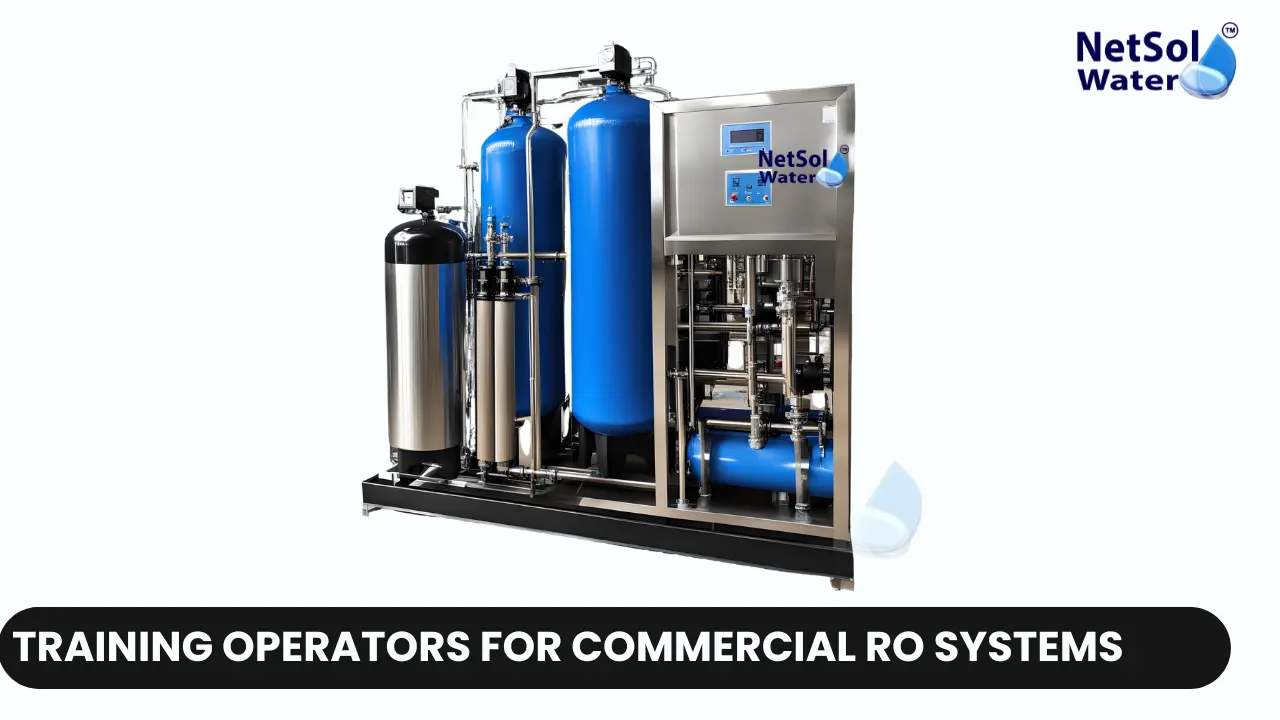Reverse Osmosis (RO) systems are common in commercial and industrial places for purifying and desalinating water. These systems are complex and require skilled operators to ensure efficient and safe operation. Proper training of operators is crucial for maintaining the performance, longevity, and safety of commercial RO systems. A well-trained workforce can help minimize downtime, reduce maintenance costs, and ensure compliance with regulations.
Understanding RO System Fundamentals
The foundation of any effective training program for commercial RO system operators lies in a thorough understanding of the system's fundamentals. Key topics to cover in this section include:
Principles of Reverse Osmosis: Operators should understand the basic principles of reverse osmosis, including the separation mechanism, membrane properties, and the factors that influence permeate quality and system performance.
System Components: Familiarization with the various components of an RO system, such as pretreatment units, high-pressure pumps, membrane modules, and post-treatment equipment, is essential for effective operation and troubleshooting.
Water Chemistry: Knowledge of water chemistry principles, including pH, total dissolved solids (TDS), hardness, and scaling potential, is crucial for understanding the impact of feed water quality on system performance and membrane integrity.
Operation and Maintenance Procedures
Proper operation and maintenance practices are vital for ensuring the longevity and efficiency of commercial RO systems. Training should cover the following topics:
Start-up and Shutdown Procedures: Operators must be trained on the correct procedures for starting up and shutting down the RO system, including pre-operational checks, sequencing, and safety protocols.
Monitoring and Data Analysis: Training should cover the interpretation of system parameters, such as pressure, flow rates, and conductivity readings, and how to use this data for optimizing system performance and identifying potential issues.
Membrane Cleaning and Replacement: Operators should be trained on membrane cleaning techniques, including chemical cleaning procedures, and the criteria for determining when membrane replacement is necessary.
Troubleshooting and Maintenance
Effective troubleshooting and maintenance skills are essential for minimizing downtime and ensuring the smooth operation of commercial RO systems. Training should cover the following areas:
Common Operational Issues: Operators should be trained to recognize and troubleshoot common issues, such as membrane fouling, scaling, low permeate quality, and equipment malfunctions.
Preventive Maintenance: Training should emphasize the importance of preventive maintenance, including routine inspections, component replacements, and schedules for maintenance activities.
Spare Parts Management: Operators should be trained on proper spare parts inventory management, including identifying critical components and ensuring the availability of replacement parts when needed.
Safety and Environmental Compliance
Commercial RO systems involve the use of chemicals, high pressures, and the generation of waste streams, which necessitate a strong emphasis on safety and environmental compliance. Training should cover the following topics:
Chemical Handling and Safety: Operators should be trained on the safe handling, storage, and disposal of chemicals used in pretreatment, cleaning, and disinfection processes.Personal Protective Equipment (PPE): Training should cover the proper use and maintenance of personal protective equipment, such as safety glasses, gloves, and protective clothing.
Environmental Regulations: Operators should be aware of relevant environmental regulations and best practices for the disposal of concentrate (brine) and other waste streams generated by the RO system.
Continuous Learning and Development
To maintain a skilled and knowledgeable workforce, it is essential to promote continuous learning and development opportunities for commercial RO system operators. This section should cover the following topics:
On-the-Job Training: Hands-on training and mentorship from experienced operators can provide invaluable practical experience and reinforce theoretical knowledge.
Refresher Courses and Certifications: Regular refresher courses and certification programs can help operators stay up-to-date with the latest industry best practices, regulations, and technological advancements.
Knowledge Sharing and Collaboration: Encouraging knowledge sharing and collaboration among operators, maintenance personnel, and subject matter experts can foster a culture of continuous improvement and problem-solving.
Conclusion
Good training is really important for making sure commercial RO systems work safely, efficiently, and sustainably. By spending time and resources on thorough training programs, which teach the basics of how the systems work, how to run and fix them, how to stay safe and follow environmental rules, and how to keep learning and improving, organizations can have a team of skilled workers who can make their RO systems work really well for a long time. With a well-trained team, downtime is less, maintenance costs go down, and the organization can meet all the rules, which helps them do better overall and make more money from their water treatment operations.
Do you need an advice or assistance on selecting the best water and waste water treatment unit? We have solutions for all your problems!
Let us now your problem, our experts will make sure that it goes away.
For an assistance or related query,
Call on +91-965-060-8473
Or write us at enquiry@netsolwater.com



